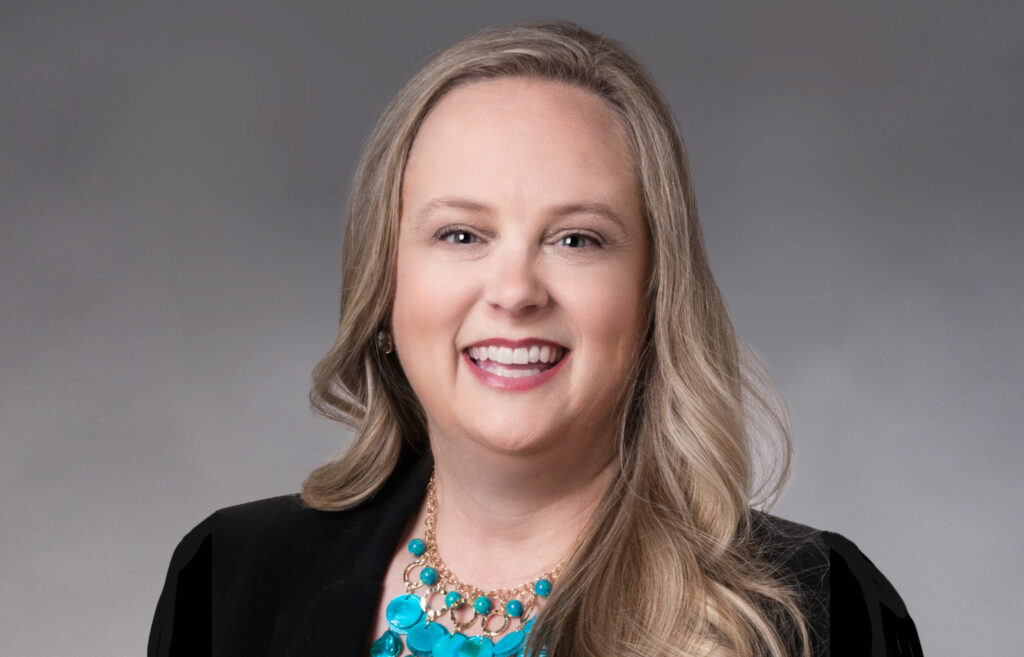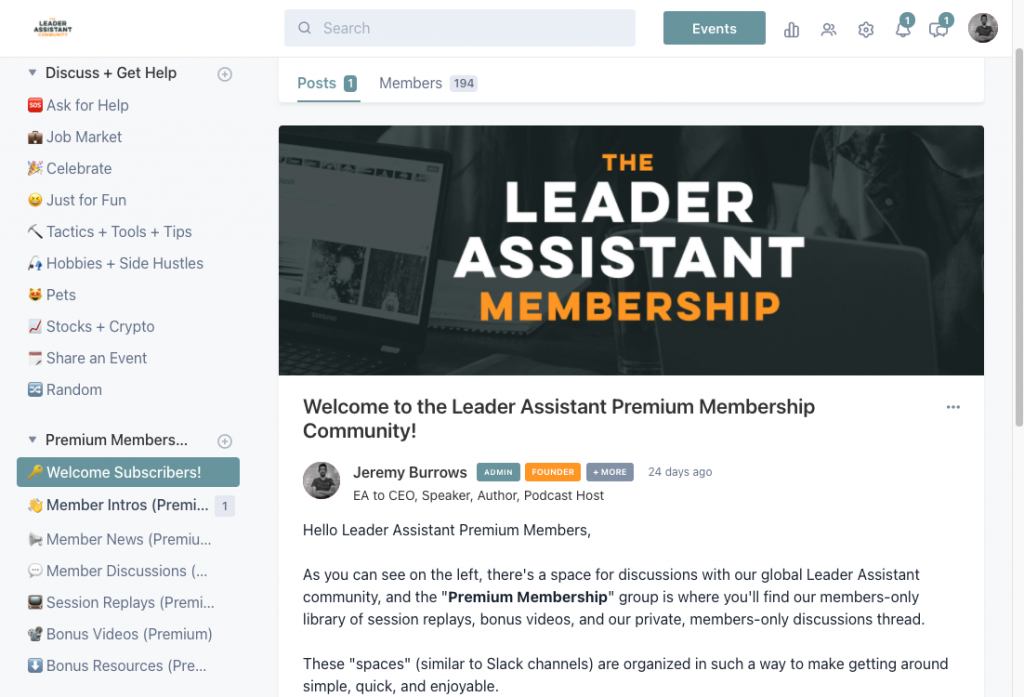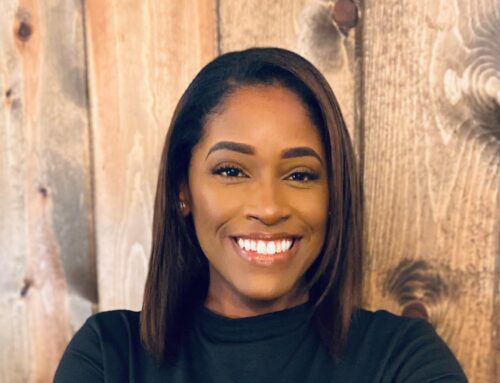Cher Heard is the Client Infrastructure and Support Manager at an Investment Management Firm in Kansas City, MO. Her role is as diverse as the team of people she manages and supports.
In this episode of The Leader Assistant Podcast, I talk with Cher about her story, the unique way her team of administrative support professionals is structured, how they support each other, and much more!
LEADERSHIP QUOTE
Leadership is an action, not a position.
– Donald McGannon
CONNECT WITH CHER
ABOUT CHER
Cher Heard is the Client Infrastructure and Support Manager at an Investment Management Firm in Kansas City, MO. Her role is as diverse as the team of people she manages and supports.
In addition to leading the Distribution Admin team and oversight of the day-to-day operations for Distribution, Cher helps build out additional infrastructure support, establish control procedures, and work on multi-disciplinary projects within the Global Client Strategy and Service team.
Each day is centered around managing the many rhythms of the sales organization within the firm as well as hiring, training, and coaching the administrative business partners that support it.
Cher is passionate about the evolving role of Administrative Business Partners in the corporate environment and spends much of her time ensuring that my team has what they need – when they need it – to learn, grow and add value.
THE LEADER ASSISTANT PODCAST IS PRESENTED BY GOODY
A special thanks to my sponsor, Goody!
If you send business gifts to employees, clients or sales prospects, Goody is a game changer. You can send one gift or hundreds at the same time, without ever worrying about shipping details. With Goody, your gift recipients provide all their shipping info, and they can even swap out your gift for another option if they prefer. It’s free to start gifting and you get a $20 credit when you sign up. Oh and if you mention you heard about Goody on The Leader Assistant Podcast, Goody will add an extra $10 credit to your account.
Go here to start gifting today!
THE LEADER ASSISTANT PREMIUM MEMBERSHIP
To learn more about how you can join the now 200+ growth-minded Leader Assistants, check out our Leader Assistant Premium Membership for ongoing training, coaching, and community.
THE LEADER ASSISTANT BOOK
Download the first 3 chapters of The Leader Assistant: Four Pillars of Game-Changing Assistant for FREE here or buy it on Amazon or Audible.
LEADER ASSISTANT LIVE EVENTS
Check out our constantly updated schedule of events for admins and assistants at LeaderAssistantLive.com. Including our all-day, online leadership workshop at leaderassistantlive.com/workshop.
JOIN THE FREE COMMUNITY
Join the Leader Assistant Global Community here, or the Facebook Group here for bonus content and to network with other assistants who are committed to becoming leaders!
SUBSCRIBE
Subscribe to The Leader Assistant Podcast so you don’t miss new episodes!
You can find the show on Apple Podcasts, Spotify, Google Podcasts, Pandora, and Stitcher.
Join my email list here if you want to get an email when a new episode goes live.
LEAVE A REVIEW
If you’re enjoying the podcast, please take 2 minutes to rate and review the show on Apple Podcasts here. Each review helps me stay motivated to keep the show going!
—
EPISODE TRANSCRIPT
Cher Heard 0:00
Hello, I’m Cher heard and today’s leadership quote comes from Donald McGannon leadership is an action not a position.
Podcast Intro 0:11
The Leader Assistant Podcast exists to encourage and challenge assistants to become confident game changing leader assistants
Jeremy Burrows 0:19
the The Leader Assistant Podcast is exclusively brought to you by goody which provides effortless gifting for all occasions. If you’re tired of sending tacky impersonal business gifts, then you should definitely check out goody my friends at Goody offer a collection of hundreds of curated brands like Levain bakery, Thera body, milk bar, and Ember mugs. With goody, if your recipient doesn’t like your gift, they can swap it out for one they do like you can find perfect gifts for any occasion. Whether it’s work, anniversaries, birthdays, new hire onboarding or company swag. It’s free to start gifting and you get a $20 credit when you sign up. Also, be sure to mention The Leader Assistant Podcast when signing up, and goody will add an extra $10 credit to your account. So go to leaderassistant.com/goody to disrupt the inefficiencies in your team’s gifting strategy. Again, that’s the leaderassistant.com/goody Hey friends, thanks for tuning into The Leader Assistant Podcast your host Jeremy Burrows and welcome to episode 173. You can check out the show notes for this episode at leaderassistant.com/173 Leaderassistant.com/173. And in today’s episode, I’m excited to be chatting with fellow Kansas City in Cher Heard share. How’s it going?
Cher Heard 1:58
Very well. Thank you, Jeremy, how are you?
Jeremy Burrows 2:00
I’m doing well. I’m very excited to be speaking with you. So share works at an investment management firm in Kansas City, Missouri. And her title is a very interesting one. And we’ll get into this more in depth here in a minute. But her title is client infrastructure and support manager. Is that right? That’s correct. Yeah. Got it. All right. It’s a little bit of a mouthful, but we’ll figure it out. Yes. So Cher, and I put together an event, right, literally right before the world seemingly ended with COVID. In Kansas City, and it was really fun. We had 170 assistants in the room. And it was a blast. And then I think the world shut down probably two weeks later.
Cher Heard 2:49
I think so I can’t believe it’s been almost two years since we did that event. It was an amazing afternoon.
Jeremy Burrows 2:55
Yeah, yeah. So it’s a lots happened since then. So I’m excited to chat with you and hear about how your roles evolved, and how your title has evolved, and all that fun stuff. But first, let’s jump right into When did you become an assistant and why did you become an assistant?
Cher Heard 3:14
When did I become an assistant? Okay, so my first administrative job was actually a temp role. I was I was working at a small manufacturing company, I was only supposed to be there for a couple of days, their office manager was ill and they didn’t have a backup. So they asked me to come in and just answer phones for a few days, the owner saw that I was quite bored and had nothing to do other than answer the phone. So he gave me a few things to do. And one of those was to balance some of the accounts, you know, just you know, purchases and expenditures and that kind of thing. And so I spent a few days doing that while I was answering phones. While I was doing that I also inadvertently discovered that the office manager was stealing money from the company. So long story short, she was let go. And then they ultimately offered me a full time gig. It was a great opportunity for me because as an office manager in a small manufacturing company, you’re kind of asked to do a little bit of everything. You’re a little bit of you know, accounting and customer service and HR and all that kind of thing. So I was hooked immediately on a job that offered me so many different opportunities to learn different things.
Jeremy Burrows 4:21
Wow. So that is definitely one of the more interesting stories like here help out for a couple days into the fine and oh, by the way, did you know the person I’m filling in forms stealing money?
Cher Heard 4:36
Yeah, it was it was an interesting discovery. So But ultimately, it was a win for me, I guess so.
Jeremy Burrows 4:42
Wow. Wow. So okay. So then Where has your administrative career taken you since then.
Cher Heard 4:50
So from there, I actually did quite a few just a different office manager type roles in manufacturing small manufacturing companies, you know, you know, under 25 employees He’s running the office, you know, speaking to customers on a daily basis, managing the product going in and out that type of thing. And tell I had a friend who, whose daughter was in a on a team where my daughter was, and she said, Hey, we’ve got an opening at our company, for an administrative assistant, you should consider, consider applying. And I did, I had a lot of interviews, actually seven at this firm. And they finally picked me up for a role. And I started out as an administrative assistant. And I’ve been at this company now for 22 years. And it’s been, it’s been a wonderful run, and I plan on being there for many more years to come. I’ve had a lot of great opportunities. And my role has shifted over time I was an administrative assistant, then a coordinator, that’s kind of how they roll. They go at our firm, they go from assistant to coordinator, then I became an executive assistant, and then Operations Manager. And then now the new role that I meant and overtime, just additional responsibilities came on up to an including I started managing administrative assistants as well.
Jeremy Burrows 6:04
Nice, nice. So that sounds like about what, five or so titles five or six titles maybe total? Yes.
Cher Heard 6:13
That sounds about right. Yes. Awesome.
Jeremy Burrows 6:17
So when you started managing other team members and other assistants, being part of a team team lead? How did that challenge you? What was what was challenging about that transition from working on a team to having a team?
Cher Heard 6:37
Well, it was somewhat of a natural transition. For me, one of the things that I did not have in the administrative role, because this was many, many years ago was, I always reported directly to the person that I supported. So I didn’t have anybody that I could go to directly that was focused on my career, my needs, my goals, my development, my learning, except for me. So I was looking to provide to my the people that were then under me some what I was missing those all those years. So somebody who would make sure that I had opportunities for learning and development, somebody who would provide opportunities for me to be seen by other leaders and you know, put me out there so that I could you know, gain that reputation, somebody who would be thinking about my career path and where I wanted to go. So it was it was sort of a natural transition for me, because that’s what I wanted to provide for that team, something that I didn’t feel like I had, as I was starting out my career in corporate America.
Jeremy Burrows 7:34
Nice. So did you seek out the role? Or did they kind of say, hey, share your your,
Cher Heard 7:45
as I remember it, it was more of an opportunity. They just said, Hey, we really feel like we could combine some of these roles under one person, you know, might take a little bit of the load off of that executive for managing the assistants and provide the assistance from someone that they can go to and ask for help and support and guidance. And would you be interested in absolutely I was. I really like getting to mentor and coach the team and work with people and help them achieve whatever goal it is that they want with their career. So it was it was not something I found to be overly difficult, but it doesn’t mean I didn’t have a lot of learning to do.
Jeremy Burrows 8:21
Yeah. So was there a conversation? In that sense of was it a promotion with a compensation bomb, and all that fun stuff?
Cher Heard 8:33
Yes, I went, when I went from administrative coordinator into the the operations manager role and actually became a manager. That’s when there was a change in the compensation, okay,
Jeremy Burrows 8:43
yes, yes. Did you have to fight for it? Or was it kind of a natural progression based on the firm’s org charts and whatnot,
Cher Heard 8:52
it was a pretty natural progression. I think it was the roles after that, that kind of I kind of, because I was in that operations manager role for probably a good 10 years. So it was the next step that took me a little bit longer to get through and to. But all the while, you know, I always had managers looking out for me, it was just a matter of trying to define, as you know, trying to define what the role is, what is the title as those roles Grow? Grow, there isn’t always a really clearly defined path. So that’s something that I’m trying to do for my team help give them that clearly defined path. But it’s not always easy as you’re coming up.
Jeremy Burrows 9:28
Right. So your current title is client infrastructure and support manager. What does that mean? Yes.
Cher Heard 9:35
Well, my team has grown over the years. So I should start there just by saying it was probably, I’m gonna say around 2017. And I had just a small team of three or four people. But our team was really on the radar of the leadership team. They could see the benefits of our team and some of the things that we were doing we had opportunity to be seen and and they were impressed by what we were doing. And I was approached by leadership to expand that. So my team is now approximately 2024 people, I believe right now, including one manager that’s under me. So we’ve grown a lot over the years, we now encompass the entire sales and marketing organization, all of the admin in that organization report up under my umbrella. And then more recently, my role title change. And basically what the infrastructure and support manager means it’s a lot of lot of words there, I know. But I work with our leadership within our sales and marketing organization, to provide infrastructure support for each of their business areas. It’s a lot of project management, whether it’s onboarding of new sales, team members, or business continuity, or even like for the past two years, I’ve been working with HR to help keep our sales team members safe while they’re on the road. I have the opportunity to work with a lot of different areas of the firm, to help connect workstreams to streamline and improve processes. And ultimately, we want to make sure that we ensure our client facing teams have all that they need to be successful when they’re out in the field. So from an operational point of view, we’re just kind of trying to help make sure that all those things line up and that we improve processes as we go.
Jeremy Burrows 11:12
Awesome. So it’s pretty, it’s a pretty unique structure of admin support at the firm. So can you talk a little bit about maybe what’s, how it works for the assistants on your team? And the benefits of this different? Like, what’s, what’s the unique part about it? And then what benefits the assistants and benefits the firm as well? Why does Why do you like this structure?
Cher Heard 11:42
Sure, no, I’m glad that we’re going to talk about this, this is something I get to talk about. Often when I’m doing interviews, candidates always find it an interesting structure. And they have a lot of questions about it. So I’m glad I’m getting to talk about it in this forum. So historically, and an admin role, your success and your ability to grow was somewhat dependent on the engagement of the executive that you supported, right? And, and they weren’t necessarily we’re not necessarily focused on your career. When looking for a new role as an assistant, sometimes you have to, you know, you’re interviewing them as much as they’re interviewing you. And you just kind of cross your fingers and hope that you’re getting an executive that supportive and wants to develop you and help you develop in your career and will and will support you in that. This structure provides a clear support, supportive leadership to help you develop and achieve whatever goals that you have for yourself. And I provide guidance and feedback along the way, for someone so that they know, you know, they have all that feedback that they need from somebody that’s experienced within the field, if that makes sense. So I’ve done the job. So I can say, you know, without a doubt, you know, this is going well, you’re heading in the right directions, here are some things I would suggest. But the benefits to the admin is really, there’s quite a few of them, I would say, the learning and development and career paths. So I am very passionate about making sure that our team has opportunities to learn and grow. I know you talk about this a lot on your podcast. But I want to provide as much opportunity as I can. So we might bring in an instructor to work on something maybe we may work with our HR team to help provide additional opportunities for learning. within the group, people will share, we have a team’s channel, and we post on one of our channels. Anytime you watch a YouTube video or you take an online class or something that you find to be very helpful, we’ll post it out there so that people can see internally what you’re doing, how you’re learning, and then they can learn from that. So learning and development is something that I have a lot of passion for, I don’t want admin to come in, into it to a position on my team and feel like they’re not having opportunities to learn every single day. They also get coaching and guidance from an experienced leader in the area. There are clear expectations, it’s not gray. So with my team, it’s very clear what your role is, you know, what is expected of you how we’re going to measure you against those expectations. Sometimes that’s not always so clear in these roles, especially when they’re not when they’re managed by an executive. You have the peer to peer to peer to peer support. It’s much more evident. I feel like in a team environment, you know, as an admin, having worked under an executive, I had peers that I worked with, but they weren’t really part of my team. So as the way that we work, we are truly all part of one team and it really it really helps to garner that, that opportunity for people to you know, share best practices, share with their learning, help each other out because they are truly part of that team together. We also get a nice bench strength as I like to call it so you were just talking about baseball, you know, having extra people on the bench when you need help or when you want to take time off you want to take vacation days you know I’ve it always is frustrating to me to hear an assistant is timing their vacation at the same time as their executive. I hate to hear that it’s your PTO you should be able to take it when you want to take it and the nice thing about our team is you do had that bench strength, someone that you can call on and say, you know, yes, I have these two executives I support, I’m going to ask you to take one, I’m going to ask you to take one. And here’s all the information, you know, have at it. And you know that that executive is well covered while you are gone. So I feel like the team is, has a lot more leeway to take vacation whenever they want to take vacation. So that’s great. I think also, I provide what I’m going to call executive coaching or managing up. So it’s sometimes hard in a position to tell your executive that you don’t like the way they do this or that or you wish they would change this habit or that or you can’t do their personal errands for them. So whether or not your company allows you to do personal work for executive, it’s hard to have that conversation and say no, sometimes I can be that person that steps into the gap and helps them with those conversations, whether I help guide them on how to have it themselves. Or if I step in and do it for them per their request, I’m there to do that. And, and as a leader, part of my role is just to help remove obstacles. This can be seen in a number of ways, like we talked about training, but it can also be helping create opportunities for them, providing balanced feedback, being a facilitator, and like I said, also standing in the gap, helping them to decipher or interpret feedback from their executive, they may not understand why is he telling me this over and over again, I changed it I thought I was doing it right? How do you interpret this share, and so we can have those conversations, and I can offer suggestions and help get them to the other side. I also think that our structure allows for the admin to have a separate identity. Many on my team have expressed that in the past, when their executive would leave the firm or walk out the door, there was this, this gut feeling this worry that because they left, you are no longer needed. Within the structure that we have, there’s a lot more stability and comfort and knowing that their future does not necessarily rests solely on that executive. If they walk out the door for a new role, that’s okay. That doesn’t diminish the role that you’re doing. And so I can help, you know, guide them as that executive is gone. If they’re if we’re looking for a new person, whatever it may be, but then that new executive can step comfortably into the new role, knowing that they have somebody there that that can provide, you know, background and context for, you know, things that were being done prior, and then they can work and develop their relationship going forward. So I think that has been a nice, a nice thing for the assistants on the team to feel like they have that stability, where they might not have felt that before.
Jeremy Burrows 17:31
That’s a that’s a big point. Because I was talking to one of my assistant coaching clients, and she was mentioning how I think it was like three different executives in a year and a half. And it’s just, there’s, it was a lot of change. And every time one of the executives left, it was like, Okay, well now what do I do? And so it’s great that you all have the structure and the support and the team, say, Okay, now you’re not just left on an island, and then we’ll see if the next executive, you know, right, chooses you or shows up and takes you off that island. But we’re actually here together to help you find the next to land basically.
Cher Heard 18:19
Exactly. It’s always been a little baffling to me that there is this ability to say yes, no, or I’m taking somebody with me, like, just because an executive gets a promotion, does that mean the assistant should get it or if an assistant gets a promotion, you know, you know, where’s the executive go, you know, it’s there, there’s, they’re independent of each other within this structure. Oftentimes, as somebody is moving through the career path on my team, that may mean they’re changing who they support, because we kind of have tiered our support of the different levels and the different people within the firm. So if somebody is moving from a coordinator position into an executive assistant position, that comes with also supporting a different type of person. So that means there may be moves and shifts and changes within the team. And our leadership has empowered me to be able to make those changes as necessary to make sure that we have the best support and the best career path for everyone involved.
Jeremy Burrows 19:13
Nice. Love it. Yeah.
Cher Heard 19:17
I would like to talk a little bit about the benefits to the firm as well, there are definitely things that the firm has benefited from. And I think that’s where our leadership really noticed it. They felt like they feel like there’s a lot more consistency in the type of support because we’re, it’s a very clearly defined support model, we kind of I literally come up with a menu and say, Okay, here’s the key, here’s the group of people and here’s the kind of support that we can provide for them. So when you shift from one role to or one assistant to another, you’re gonna get the same type of support. Right? So you may like things done slightly different or whatever, and that’s, that’s to be expected. But you’re gonna get that same type of support if you’re in that same kind of a role. So that’s, that’s been really beneficial because then there’s not inconsistent and sees in the way we support people. We’ve also developed an implemented a lot of policies and procedures to improve function. So as a team as assistants, we’re all really good at identifying Well, that’s really inefficient. And here’s how I would make this better. So as a team, we, we identify those kinds of things all the time. And then if somebody comes to me and says, Hey, I feel like this could be improved, and here’s how, and I say, That sounds wonderful, go and figure that out, document it, let’s talk to talk to the team about it. And then if it’s determined to be something that we can all benefit from, then we put that new practice into place, and then we just move forward. And we can be a lot more efficient doing things that way. So the firm is definitely benefiting from that the bench strength that I already discussed, that’s also a benefit to the firm, right? There’s coverage for all the executives, no matter who’s out on PTO, or who may be sick. And that’s come in very handy, especially over COVID, when people had to be out for unexpected lengths of time. And that kind of thing, we’ve we’ve definitely had that coverage. We also help out a lot with the recruitment, obviously, I do all the recruiting and orienting of the new assistants. So that’s one less thing for executives have to focus on, I go in there and I and I can, I can whittle down our pool of candidates and then have them interview just the the few candidates that we’ve deemed that would be appropriate for that executive. So that really helps them and then when they come on, we do all the training. And again, the size of the team helps with that. Because as a team, we train together, we pick people that have areas of expertise, and we say, Okay, you’re going to take the new person, you’re going to spend time working on travel, or you’re going to spend time working on expenses, or you’re going to work with the CRM, and help them understand that. So as a team, we get to work together to train new new hires as well. And as mentioned, too, I also feel like this independent role. So like if an executive leaves and the assistants in the position, I do feel like it can be a bit of a risk mitigator executives can comfortably step into a role and be provide be provided really valuable and strategic support right from the very beginning. Somebody who’s already established and knows what they’re doing, and can really help them hit the ground running.
Jeremy Burrows 22:02
I was gonna say it shortens the onboarding time. Yeah.
Cher Heard 22:06
Yeah. Great. Extremely. Yes.
Jeremy Burrows 22:09
So okay, so this is awesome. So thank you so much for walking through that what you mentioned learning and development, and, you know, career path, how you guys are working on having a clear career path for the administrative assistants? How to? How do you take advantage or help them take advantage of opportunities, and all that fun stuff? What? What are your favorite resources or learning development tricks, if you will, for those listening, who are looking for their own personal learning and development for their career, or they lead a team or they’re part of a team and they want to implement better learning and development in their team?
Cher Heard 22:58
Well, a lot of things come to mine. But the first and most obvious one, and that kind of, fortunately for us goes back to the team is with 25 assistants to talk to, you have a ridiculous amount of resources right there within the team. Right. So you had varying degrees of knowledge and varying degrees of expertise. So one of the things that we started, especially during COVID, because we were trying to stay even more connected with that with each other because we couldn’t spend time in each other’s company was we started coffee chats, and you would just schedule one on one time with another assistant and you come to the table with questions. You know, how are you organized? How you organizing, prioritizing your day? How do you go about managing your executives in Spark? How do you manage their their calendar and just sharing with each other, just screen share whatever you have to do to share your best practices with the other person and let them visually see what it is you’re doing. And then vice versa. They’ve got a lot of benefit from that. I love having one on ones with my team and having them say, Oh, I met with so and so today. They showed me this really great tip and trick. And now I’m doing it every single day. So learning from each other is first and foremost. I already mentioned our team’s channel. So if you have teams or slack, I highly recommend a channel that’s just dedicated to personal development and just throw anything in there that’s of interest, whether it’s reading articles, books, we have an online learning tool within our firms, you can learn about the investment business, or you can learn about more general topics as well. So if somebody takes a class there, they’ll post it and say this one was good, or this one’s not worth your time, whatever it may be. And then you know, YouTube is your friend, especially when you’re trying to learn something very specific. You would be surprised how much time you can spend out on YouTube trying to learn how to make you know a certain kind of chart, you know, you need a new Gantt chart or you need a donut chart and you’re not quite sure how to make it look just so I’ve seen a couple of assistants together with their heads down really working to try to perfect that skill and YouTube can be a great learning opportunity. It’s quick and you’re focused on that one thing that you need to know. So those are just a few Couple of things that we we love to use within the team.
Jeremy Burrows 25:03
Love it. Well, this sounds like a fun team. So if anybody wants to work for you, they should probably ping you on LinkedIn. Right?
Cher Heard 25:12
Absolutely. Actually, I have a position open in our New York office right now. So let me know if you’re interested,
Jeremy Burrows 25:18
as well. Cher, thank you so much for sharing all of that. And, you know, it’s always fun to talk to a fellow Kansas City in. And I really hope we can do another event soon. I know you all are getting back into the office finally, here starting to do that. So maybe we can work on another KC event for the Midwest? And how can people reach out Where where is the best place is? Do you have a website? Do you just want them to ping you on LinkedIn? What if people want to say hi? Yeah,
Cher Heard 25:52
ping me on LinkedIn? That is the best place to get me easy to find, share heard? Yeah.
Jeremy Burrows 25:57
Great. Well, I will put that link in the show notes at leaderassistant.com/173 Leaderassistant.com/173. And you all can reach out and say hi and ask, share all the questions about leading a team. And I know it’s been fun to hear how the team and your role and your title has evolved over the last few years. So thanks for being on the show and sharing everything.
Cher Heard 26:30
Thank you so much. It’s really great to spend some time with you and I’m looking forward to the next leader assistant live event in Kansas City.
Jeremy Burrows 26:48
Please leave you on Apple podcasts. Goburrows.com









